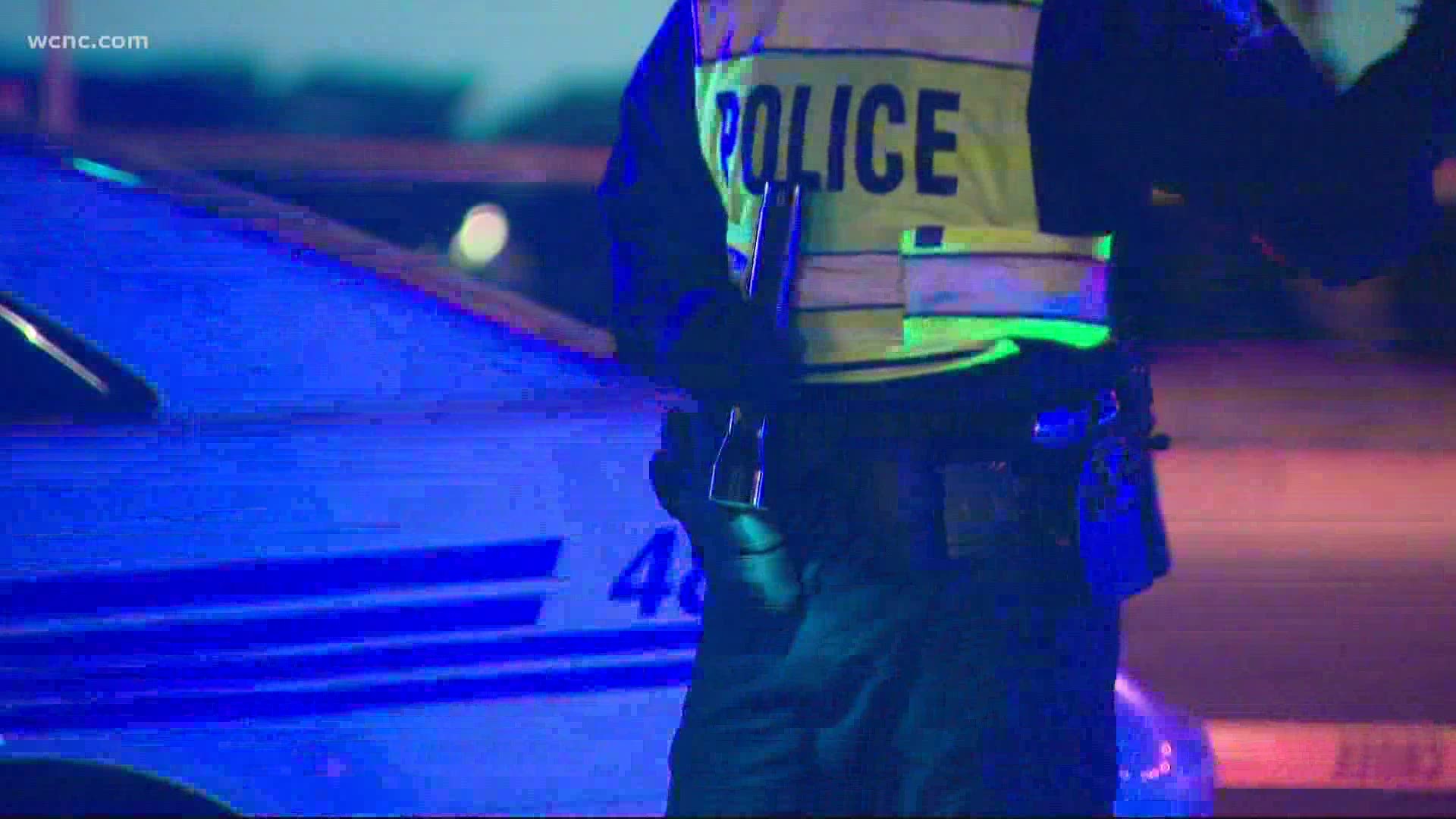‘Not defunded but reallocated’ | City reviews how CMPD responds to 911 calls
WCNC Charlotte's Defenders find hundreds of hours are being spent responding to non-emergencies as the city hits its highest homicide rate in years.
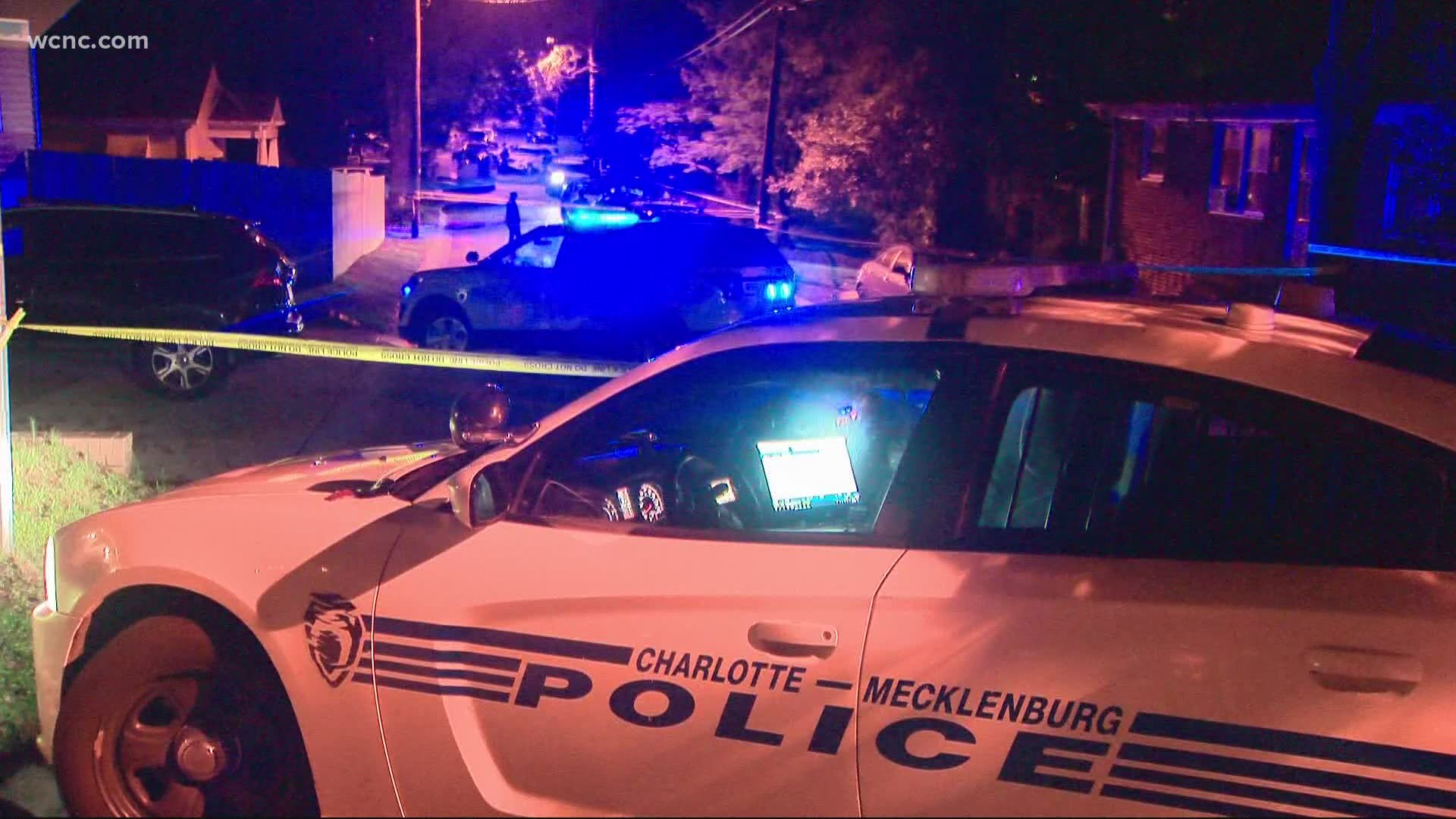
An exclusive WCNC Charlotte Defenders investigation found Charlotte Mecklenburg Police officers are frequently tied up responding to non-emergency calls instead of fighting violent crimes.
These findings come as the Queen City's homicide rate is already higher than it’s been in five years with about a month still left in 2020. Charlotte has seen 104 homicides in 2020 as of Nov. 25. Comparatively, there were 103 total homicides in 2019 which was already nearly double the homicide rate in 2018 of 57.
Responding to non-emergent 911 calls
The Defenders team look at 911 calls from the first full week of October this year and found officers are spending hundreds of hours on non-violent investigations like noise complaints, minor accidents and found property. In fact, the Defenders noticed one particular incident where CMPD officers spent 94 minutes responding to an abandoned vehicle call.
“I have a new car sitting in the middle of the cemetery,” the 911 caller said.
LISTEN TO THE 911 CALL BELOW. CLICK HERE TO LISTEN IF ATTACHMENT DOES NOT LOAD.
In another 911 call, officers spent nearly two-and-a-half hours on a noise complaint.
“I call the manager for the apartment; he says you have to call the police,” the 911 caller said.
LISTEN TO THE 911 CALL BELOW. CLICK HERE TO LISTEN IF ATTACHMENT DOES NOT LOAD.
In a third 911 call, police spent more than eight hours, or a full workday, on a call for found property when someone found something out of place or suspicious.
“Somebody threw a bag behind my yard,” the 911 caller said.
LISTEN TO THE 911 CALL BELOW. CLICK HERE TO LISTEN IF ATTACHMENT DOES NOT LOAD.
None of these calls resulted in an arrest or a criminal investigation. They are simply a snapshot of the long list of non-emergencies typing up CMPD.
In total, the Defenders found through CMPD data, during that first week of October, officers spent nearly 450 hours for the lowest priority calls. That's the equivalent of 11 officers working 40-hour weeks with no breaks.

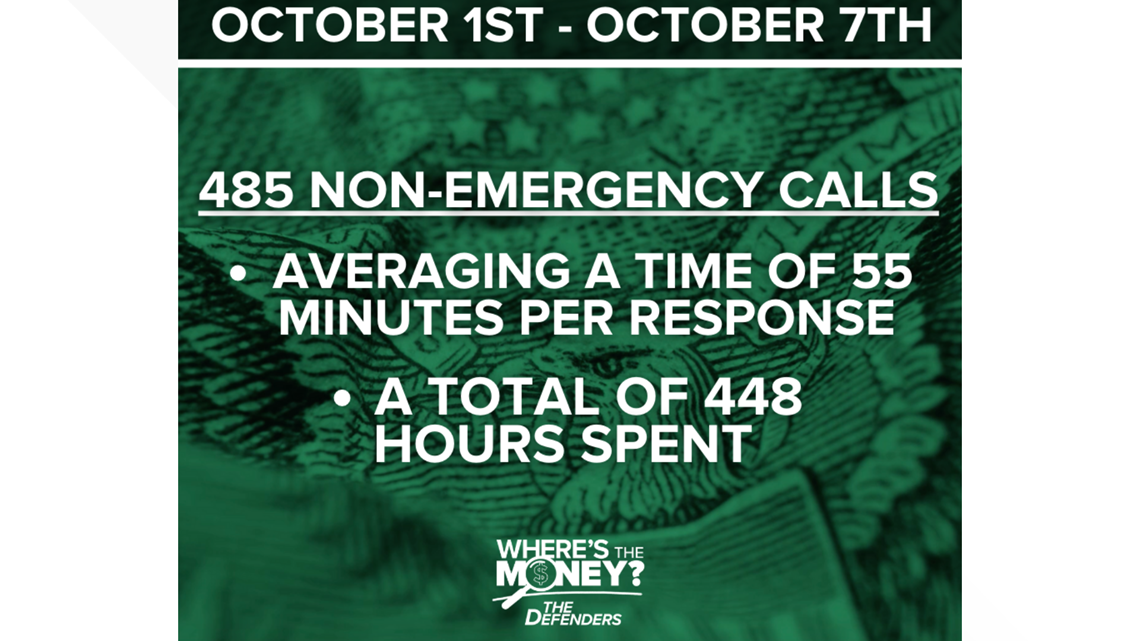
Is a different police model needed?
This investigation comes as a national debate is raging over how police departments should operate and be funded. Community leaders say a different police model would free up officers to address more serious crimes and could save taxpayer money.
“That’s just not in a taxpayer's best interest, and it ties up the police,” Robert Dawkins with the advocacy organization, Action NC, said. “This data that you’ve got is going to go a long way to helping us show that."
A new report by the United States Conference of Mayors says cities should be asking themselves several key questions when it comes to police reform, including how often officers are called out for property offenses.
During the week in October the Defenders team analyzed, data shows officers spent the most time on traffic accidents (about 131 hours), then hit-and-runs without injuries (about 113 hours). Coming in at 73 hours was investigating noise complaints. Found property totaled 42 hours and vandalism came in around 40 hours.

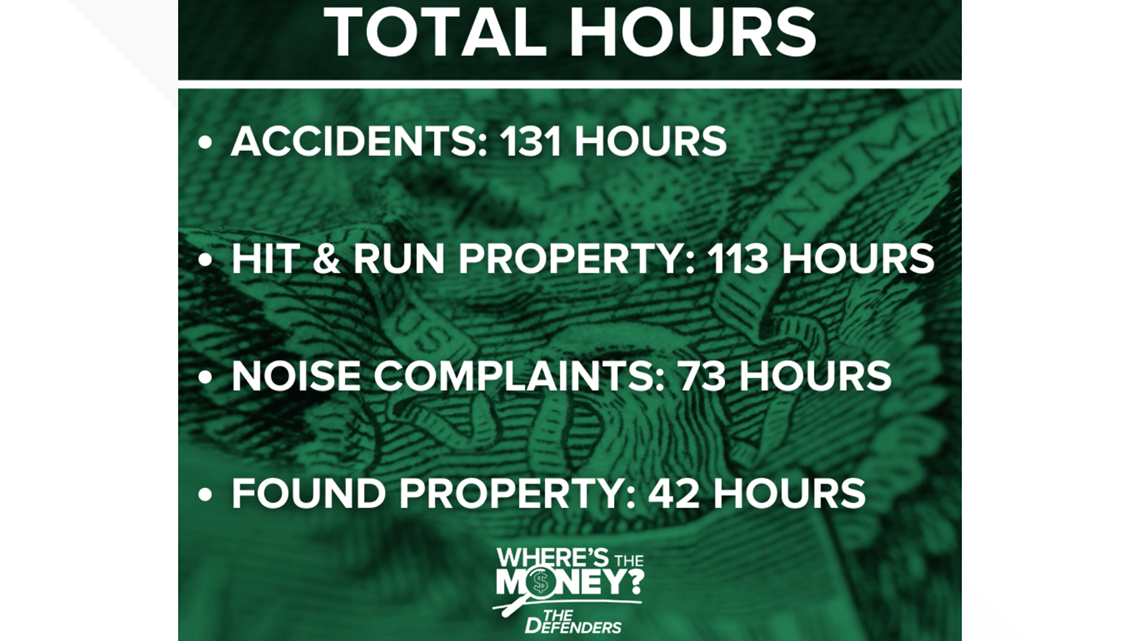
Charlotte city councilman Malcolm Graham said he’d like the city to consider other policing models for the future, which could free up officers to handle violent crime.
“I’m all in favor of looking at that to see how we move forward,” Graham said.
He pointed to the high number of homicides in the Queen City this year.
“Charlotte has over 100 homicides this year,” Graham mentioned. “We need our officers kind of really trying to be proactive.”
Dawkins also believes Charlotte can do better with its police resources.

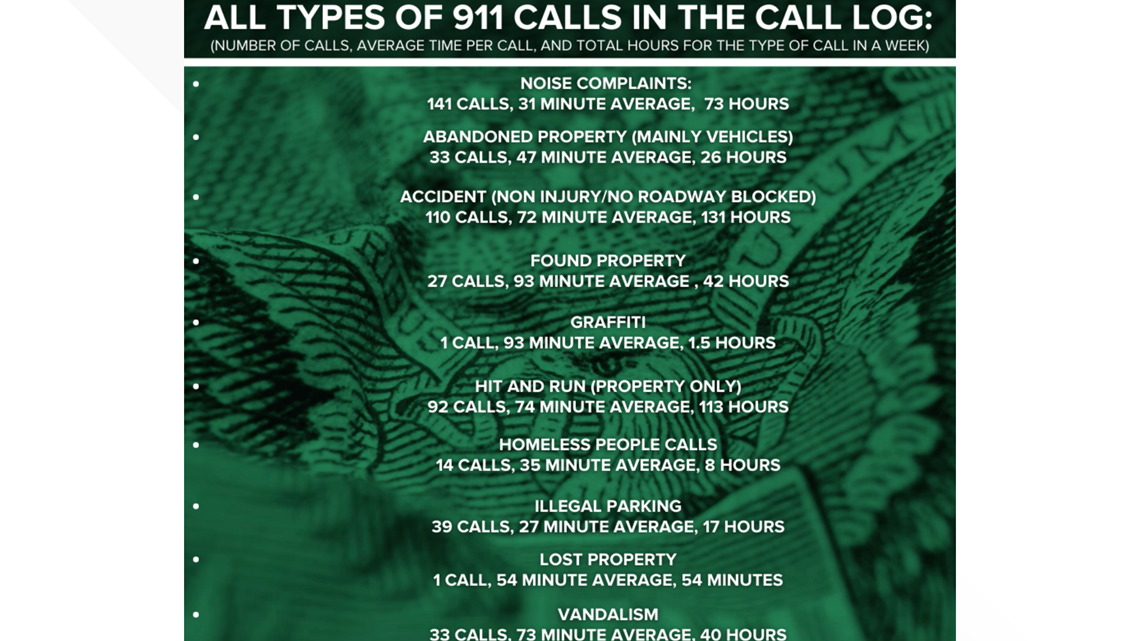
It could save taxpayers money
But others wonder: If the police don't handle those types of calls, who will?
According to the U.S. Mayors report, cities should “analyze calls for service to determine who should be the responder in different circumstances”.
“I think we can find someone else to respond to them,” Graham noted.
The answer to that may already be in CMPD, but it's not very well known. In Charlotte, CMPD already has 18 of its 44 non-police employees called "investigative technicians" who answer a wide variety of incident reports by phone.
The other 26 investigative technicians are assigned other duties with various police divisions, CMPD said. Graham supports these investigative technicians but wants to see if they can add more or enhance their duties.
It could potentially save taxpayers money. For instance, the base salary for a CMPD officer is about $45,000 per year compared to roughly $41,000 for an investigative technician.

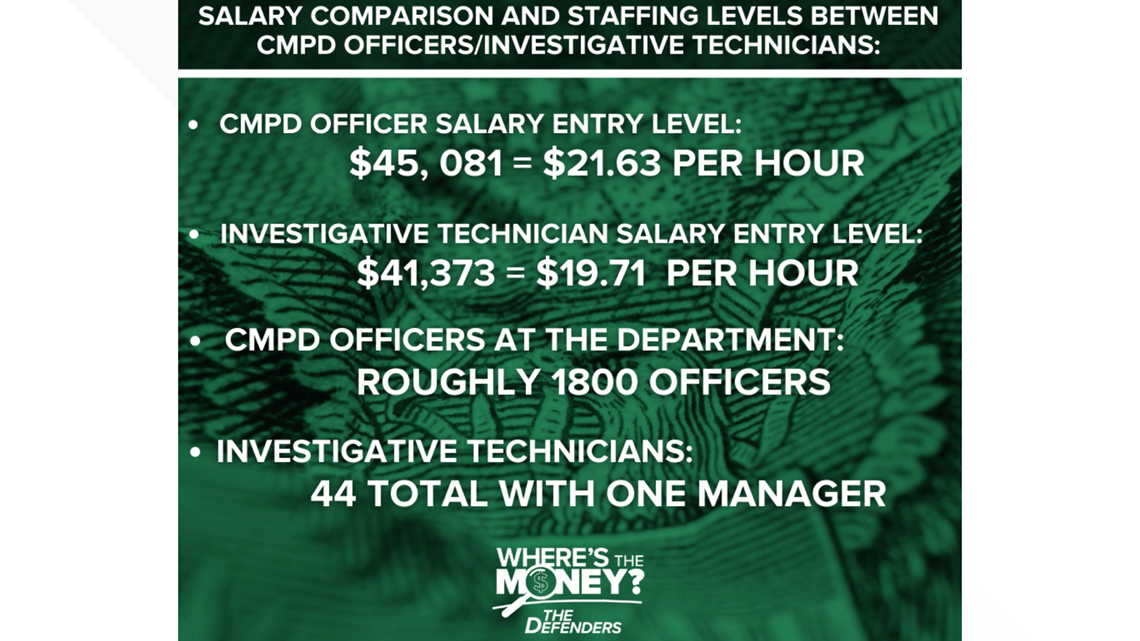
“We can find cheaper, more effective ways to respond to the needs of the community,” Dawkins said.
'Not defunded but reallocated'
The city council is moving forward with plans for an independent assessment of the issue. CMPD released the following statement about the city’s review of police operations:
“Recently, the city council voted in favor of identifying an independent contractor to conduct an assessment. The assessment will examine the benefit and impact of transferring yet to be determined, low-risk sworn assignments and non-emergency calls to other agencies/civilians. The Charlotte-Mecklenburg Police Department is eager to participate in the assessment to ensure the department is serving our community as effectively as possible.”
Dawkins emphasized they’re not calling for police to be defunded.
“Not defunded but reallocated,” Dawkins clarified.

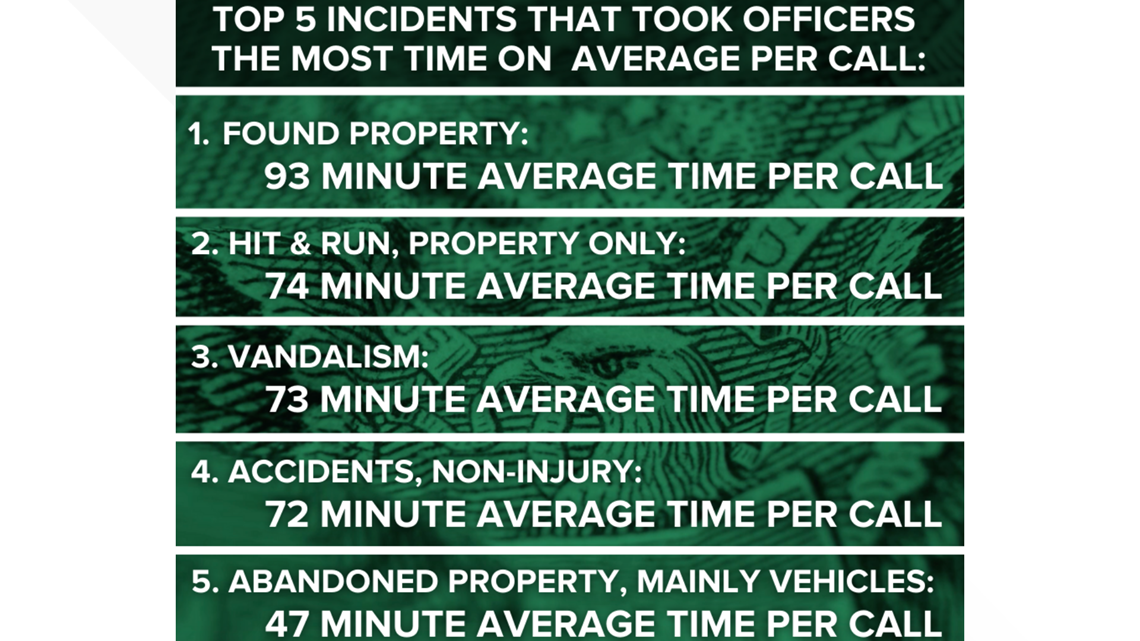
If city leaders agree with him about how to handle non-emergency calls, it’s possible the days of CMPD responding to those types of calls could be numbered.
RELATED: 'He's just a normal 16-year-old' | Teen dies, two other teens charged after shooting into home
The Defenders team wanted to know what rank-and-file police officers think about the potential changes to CMPD, so WCNC Charlotte reached out to the Fraternal Order of Police. They declined to comment on the story.


